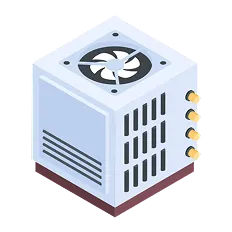In Massachusetts, HVAC licensing is divided into several specialized categories, rather than a single "HVAC Contractor" license covering all aspects. The primary licenses related to HVAC work fall under the Bureau of Pipefitters, Refrigeration Technicians, and Sprinkler Fitters (part of the Division of Occupational Licensure, Office of Public Safety and Inspections). Additionally, Sheet Metal Workers are licensed by a separate Board.
To operate as an HVAC Contractor in Massachusetts, you typically need to hold a Master license in at least one, and often multiple, of these trades, and ensure your business is properly registered.

This information has been referenced from the following sites 1, 2



In Massachusetts, HVAC licensing is divided into several specialized categories, rather than a single "HVAC Contractor" license covering all aspects. The primary licenses related to HVAC work fall under the Bureau of Pipefitters, Refrigeration Technicians, and Sprinkler Fitters (part of the Division of Occupational Licensure, Office of Public Safety and Inspections). Additionally, Sheet Metal Workers are licensed by a separate Board.
To operate as an HVAC Contractor in Massachusetts, you typically need to hold a Master license in at least one, and often multiple, of these trades, and ensure your business is properly registered.





In Massachusetts, HVAC licensing is divided into several specialized categories, rather than a single "HVAC Contractor" license covering all aspects. The primary licenses related to HVAC work fall under the Bureau of Pipefitters, Refrigeration Technicians, and Sprinkler Fitters (part of the Division of Occupational Licensure, Office of Public Safety and Inspections). Additionally, Sheet Metal Workers are licensed by a separate Board.
To operate as an HVAC Contractor in Massachusetts, you typically need to hold a Master license in at least one, and often multiple, of these trades, and ensure your business is properly registered.

This information has been referenced from the following sites 1, 2




In Massachusetts, HVAC licensing is divided into several specialized categories, rather than a single "HVAC Contractor" license covering all aspects. The primary licenses related to HVAC work fall under the Bureau of Pipefitters, Refrigeration Technicians, and Sprinkler Fitters (part of the Division of Occupational Licensure, Office of Public Safety and Inspections). Additionally, Sheet Metal Workers are licensed by a separate Board.
To operate as an HVAC Contractor in Massachusetts, you typically need to hold a Master license in at least one, and often multiple, of these trades, and ensure your business is properly registered.
In Massachusetts, HVAC licensing is divided into several specialized categories, rather than a single "HVAC Contractor" license covering all aspects. The primary licenses related to HVAC work fall under the Bureau of Pipefitters, Refrigeration Technicians, and Sprinkler Fitters (part of the Division of Occupational Licensure, Office of Public Safety and Inspections). Additionally, Sheet Metal Workers are licensed by a separate Board.
To operate as an HVAC Contractor in Massachusetts, you typically need to hold a Master license in at least one, and often multiple, of these trades, and ensure your business is properly registered.
This information has been referenced from the following sites 1, 2





In Massachusetts, HVAC licensing is divided into several specialized categories, rather than a single "HVAC Contractor" license covering all aspects. The primary licenses related to HVAC work fall under the Bureau of Pipefitters, Refrigeration Technicians, and Sprinkler Fitters (part of the Division of Occupational Licensure, Office of Public Safety and Inspections). Additionally, Sheet Metal Workers are licensed by a separate Board.
To operate as an HVAC Contractor in Massachusetts, you typically need to hold a Master license in at least one, and often multiple, of these trades, and ensure your business is properly registered.
This information has been referenced from the following sites 1, 2





